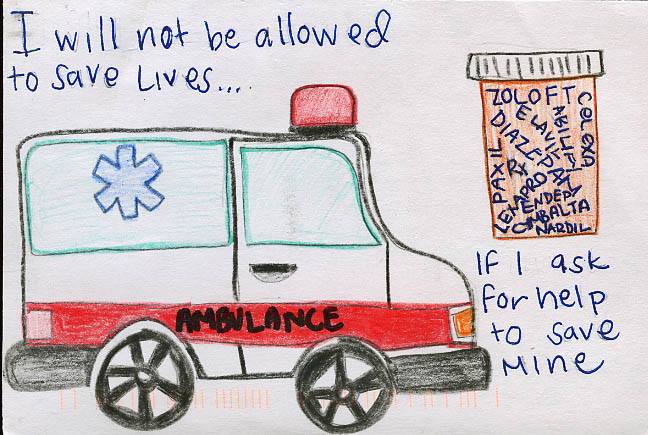by Sheila G. Roth, PhD, LCSW, EMT

Individuals working in EMS such as (EMT’s, paramedics, flight crews and others) put their lives on the line to serve people every day. These roles present unique challenges and stressors to health care providers and to their families. Yet, they are dedicated and give their all to do this work. In times of increased work stress such as mass casualty incidents, community violence, critical incidents, or a pandemic, the risk to these individuals is even greater. Interestingly, providers don’t always receive appreciation from the people that receive their help, in fact, many people don’t realize the emotional toll of this work on providers and their families. So how much of a toll can this take? One survey published in The Journal of Emergency Medical Services (2016) asked EMT’s and paramedics if they had contemplated or attempted suicide. The national survey (N= 4,022) found that 37 percent of EMS providers had contemplated suicide at some point compared to a CDC national average of 3.7 percent. In addition, 6.6 percent of survey respondents stated that they had attempted suicide and the CDC national average for a suicide attempt was 0.5 percent. This is concerning. One may wonder how this level of stress goes unnoticed by family, friends, and co-workers. The answer is complex, because people are complex, and first responders are even more complex.
Life in general can be both glorious and challenging for EMS providers. Obviously, the job can be very interesting and exciting, but it can also feel very isolating and hopeless at times. It’s not uncommon, in life, for people to experience feelings of anxiety, depression, or other behavioral health conditions. Add in the cumulative stress of witnessing physical and emotional pain, or feeling unappreciated in your role, and it takes a toll. It is understandable how this can be overwhelming for health care providers, and for some devastating. How can you help?
Ask yourself, have you ever had a concern about a co-worker’s well-being and were not quite sure of how to approach the subject? It may help to do a self-assessment first and ask yourself these questions before helping others.
- Is it normal to feel overwhelmed and think about giving up the job?
The ability to feel for others and give of yourself erodes over time as your store of empathy and compassion is exhausted. It is important to routinely replenish your well- being and compassion. Find multiple ways to replenish your own sense of calm, joy, contentment, and gratitude. Gauge yourself by assessing your physical, emotional, social, and spiritual state. Notice in what areas you are feeling just right, a little low, or empty. How can you refill those areas? Celebrate the small stuff!
- Do I know how to have a conversation on this topic with a co-worker who may be struggling?
It sometimes takes practice. You might find that another person may the best one to speak to that individual. Regardless, how do you have the conversation? It could be as simple as saying, “Hey Sam, I’ve noticed that you seem to be more quiet than usual, is everything okay?” or “Sam, do you have a few minutes to talk? I know that you’ve been going through a lot lately and I am worried about you, I want to help.” Or “Sam, you have had some really difficult calls lately, I’m just checking in to see if you want to talk? I find it helps me when I have rough calls to talk to someone who gets it.” Sam may say, “mind your own business” or Sam may say, “thanks I would like that.” Either way, Sam knows that someone cares. If you are concerned that Sam is suicidal, don’t be the only person helping. Ask the question: “Are you planning to end your life?” Asking the question will not make the act happen. It may be that Sam is on a continuum of suicidal thoughts. Get Sam the help that is needed right now and support Sam through this difficult time.
- What can EMS agencies do?
-Increase awareness and validation of reacting to stressors through education about stress, trauma, and cumulative stress, and the impact of the job on EMS providers.
-Educate providers and families to recognize the signs associated with the bio-psycho-social impacts of stress and the continuum of suicidal thinking.
-Identify means by which coping, and intervention can be provided. Make asking for help smooth and limit the hoops to jump through.
-Develop and disseminate resources for EMS providers and families.
- Are you aware of resources that EMS providers can use to reach out for support?
You do not need anyone’s permission to reach out.
- EAP Agencies (Ask if you have one for your agency and post the number in your station/base)
- National Suicide Prevention Line 1-800-273-8255
- Pittsburgh Critical Incident Stress Management 412-647-CISD (2473).
- Serving Allegheny County for Critical Incident Stress Management
- COVID-19 Emotional Support Line for first responders and health care providers
- Do you have a self-care plan for your own well-being? If so great, now help a friend to develop one.
- Recognize when you feel signs of increased stress
- Take some time to do things that you enjoy
- Talk to trusted people about your reaction to calls/situations
- Begin to use resources available to you, you deserve to feel well.
- Talk with a trauma/ public safety “aware” therapist.
CREDIT: TheEMSSiren.com for header graphic.

